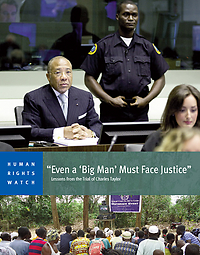[Solon Solomon is a Former Member of the Knesset (Israeli Parliament) Legal Department in charge of international and constitutional issues]
Traditionally, the law of occupation envisions the continuation and preservation of the status quo ante. Yet, in cases of prolonged occupations, it has been
conceded that the occupying power can alter legal or factual reality if this is for the betterment of the local occupied population’s life.
The question is though if in such instances, alongside a dynamic interpretation of the law of occupation, the factual and normative status quo can be subject to a change in order to meet the needs not of the local population but of the occupying power. One way to reach an affirmative answer is to broadly interpret existing notions in the law of occupation, such as that of “military necessity.” This is the path
traditionally chosen by Israel’s Supreme Court which has consistently ruled that “military necessity” covers also the wider security needs of the occupying power’s civilians.
Alternatively, someone can opt to render a dynamic note to the law of occupation and interpret it accordingly. No longer does occupation remain a static, historical fact, but it adapts to the advent of time. The question is if such adaptation is only factual or also legal. Two recent examples from the two classical prolonged occupations in the Middle East bring to the frontline this de facto and de jure transformation the law of occupation undergoes or aspires to undergo.
 Yesterday, Human Rights Watch released the report “Even a ‘Big Man’ Must Face Justice”: Lessons from the Trial of Charles Taylor. It examines the conduct of Taylor’s trial at the Special Court for Sierra Leone (“SCSL”), the court’s efforts to make its proceedings accessible to affected communities, and perceptions and initial impact of the trial in Sierra Leone and Liberia.
The aim of the report is to draw lessons to promote the best possible trials of high-level suspects who are implicated in genocide, war crimes, and crimes against humanity. It is based on interviews in The Hague, London, Washington, DC, New York, Sierra Leone, and Liberia, as well as review of expert commentary, trial transcripts, and daily reports produced by trial observers.
This post focuses on Human Rights Watch’s analysis of the trial’s conduct and lessons learned for future proceedings.
Yesterday, Human Rights Watch released the report “Even a ‘Big Man’ Must Face Justice”: Lessons from the Trial of Charles Taylor. It examines the conduct of Taylor’s trial at the Special Court for Sierra Leone (“SCSL”), the court’s efforts to make its proceedings accessible to affected communities, and perceptions and initial impact of the trial in Sierra Leone and Liberia.
The aim of the report is to draw lessons to promote the best possible trials of high-level suspects who are implicated in genocide, war crimes, and crimes against humanity. It is based on interviews in The Hague, London, Washington, DC, New York, Sierra Leone, and Liberia, as well as review of expert commentary, trial transcripts, and daily reports produced by trial observers.
This post focuses on Human Rights Watch’s analysis of the trial’s conduct and lessons learned for future proceedings.
